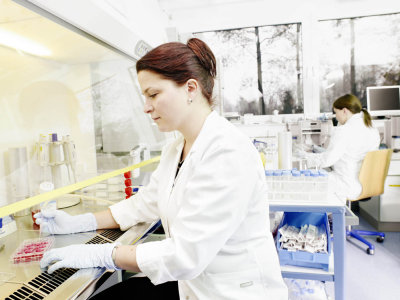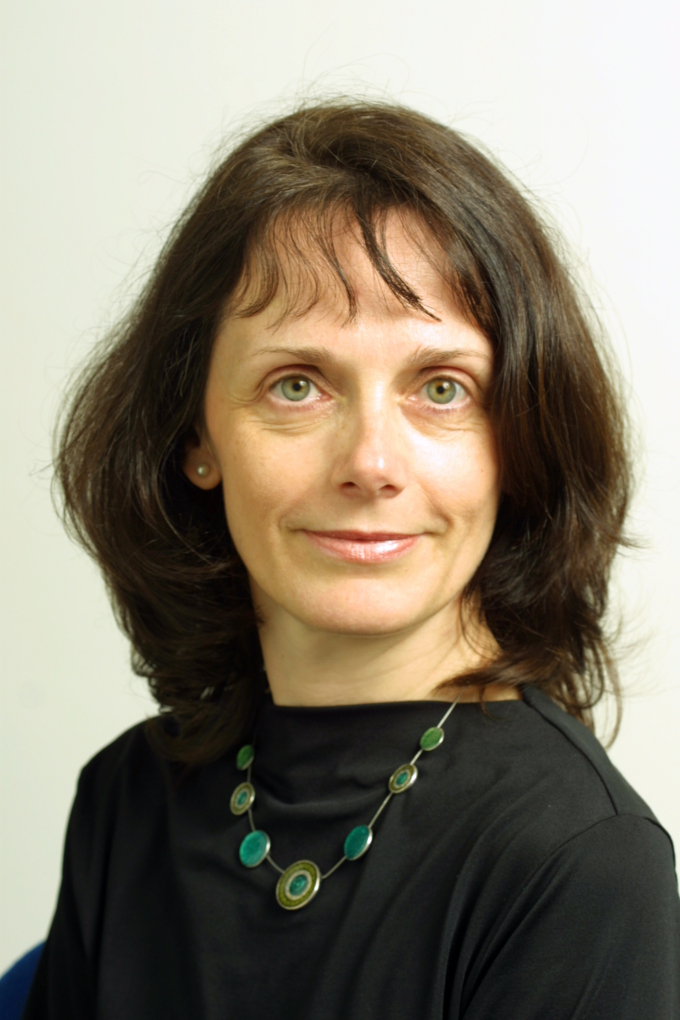New research association started: Magnesium implants shall facilitate bone fracture healing.
In collaboration with the university hospitals of Hamburg, Hannover and Graz as well as further partners, the Helmholtz-Zentrum Geesthacht will establish a Virtual Institute, whose focus will be set on degradable magnesium implants. One aim of the research association coordinated from Geesthacht is to develop first prototypes of orthopaedic implants.

The properties of magnesium implants are tested at the Geesthacht biological laboratory. Pictured: HZG scientist Dr. Luth Bérengère prepares a cell test. Photo: HZG/ Christian Schmid
Since 1 July 2012 the Helmholtz Association has been promoting a new Helmholtz Virtual Institute that will evolve in close cooperation between the Helmholtz-Zentrum Geesthacht with the University Medical Center Hamburg-Eppendorf, the Hannover Medical School and the Laura Bassi Centre of Expertise of the University of Graz (Austria). Under the direction of Prof. Dr. Regine Willumeit, head of department at the Institute of Materials Research at the Helmholtz-Zentrum Geesthacht, the scientists will fabricate degradable magnesium implants and examine their behaviour by animal studies. This analysis – scientists talk about in vivo studies – will be conducted by the partner clinics in Hamburg, Hannover and Graz.
The Virtual Institute “in vivo studies of biodegradable magnesium based implant materials” – MetBioMat – will develop aluminium free, load bearing biodegradable magnesium alloys, which can also be used for orthopaedic implants for children. The advantage is that magnesium implants dissolve in the body and therefore a second operation in order to remove the implant is not necessary.

Regine Willumeit, Head of Structure Research on Macromolecules Department and coordinator of the Virtual Institute. Photo: HZG/ Christian Schmid
“Our centre is the worldwide leader in the development of magnesium based implant materials”, says coordinator Prof. Willumeit. “We are now searching for factors to tailor the degradation of the material in an application specific manner.”
Many interactions influence the material’s chemical fate. The chemical and biological processes which occur during the procedure of dissolving the magnesium implants are already partially understood by the scientists and can be tested to some extend in the laboratory. However, magnesium behaves differently in a laboratory experiment as compared to the environment which is present in the body. Therefore the currently developed materials need to be examined in animal studies which are an important step towards applications in humans..
For Prof. Regine Willumeit, the new research association MetBioMat is an important part of a far greater vision: “The unique combination of the partners: Three leading clinics, several institutes of universities in Hamburg, Kiel and Hannover and two North German companies will enable the Helmholtz-Zentrum Geesthacht and the region to extend their lead in the field of biodegradable magnesium alloys. For this reason, MetBioMat will become the nucleus of a prospective Translational Center for Metallic Biomaterials (Translationszentrum-Metallische-Biomaterialien).”
Information about the Helmholtz Virtual Institutes
The Helmholtz Virtual Institutes hold an own structure of leadership and management and compile special concepts concerning the qualification of the scientific junior employees.
They receive funding amounting to 600,000 Euro maximum from the Helmholtz Association’s incentive and networking fonds for three to five years. As to the round of call for proposals this year, 37 applications were submitted. Ten per cent of them have now been evaluated positively. The funding volume will add up to 30 million Euro. Up to now, 99 Virtual Institutes have received or will receive nearly 100 million Euro funding in the 5 rounds, under participation of 326 partners at 61 different German universities.
Therefrom 56 million Euro have gone or go to the universities.
Kontakt

Helmholtz-Zentrum Geesthacht
Phone: +49 (0) 4152 87-1677
E-mail contactMax-Planck-Straße 1
21502 Geesthacht
